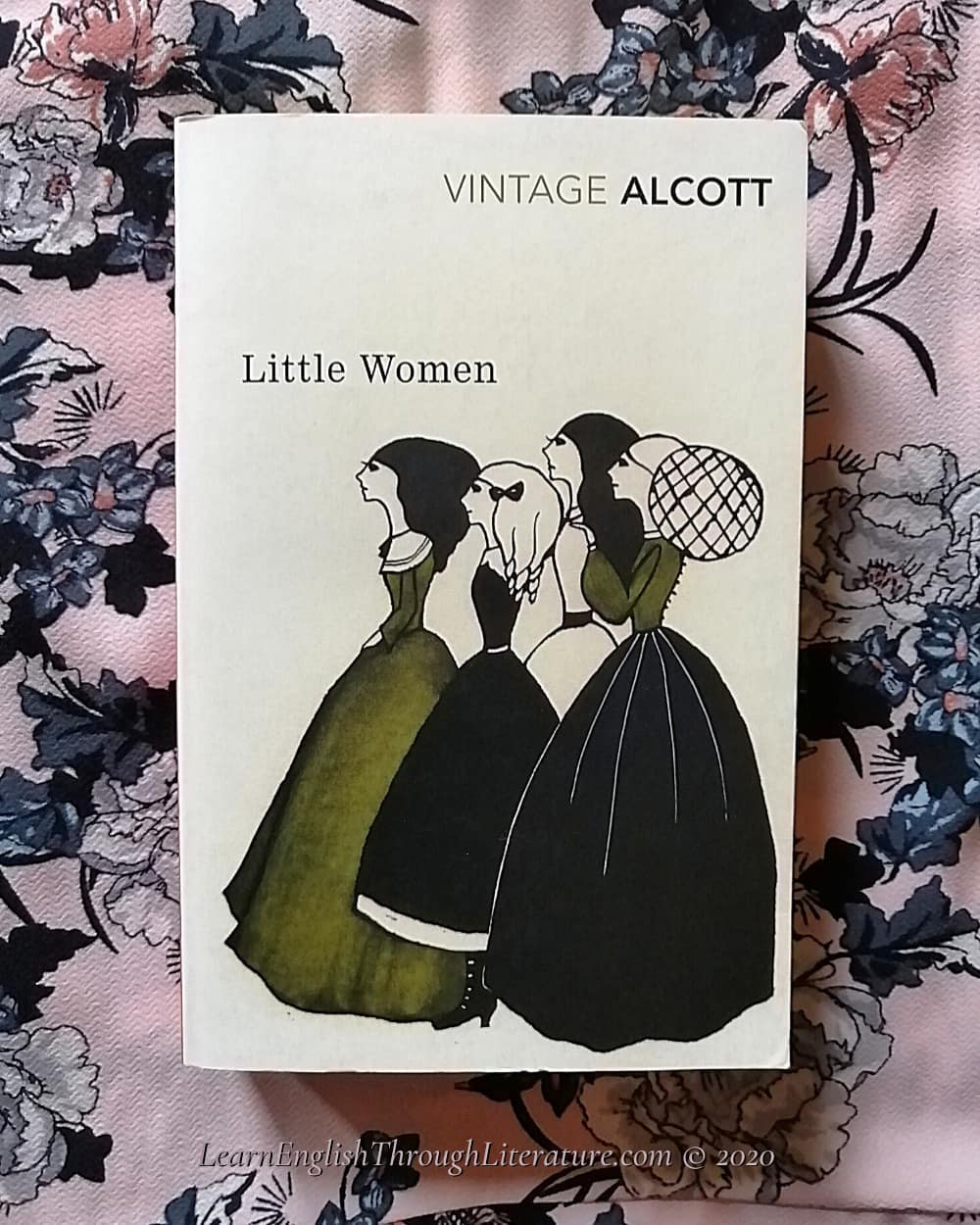🪔 “I’m the man of the family now papa is away, and I shall provide the slippers, for he told me to take special care of mother while he was gone.”
– Louisa May Alcott, Little Women; Or, Meg, Jo, Beth, and Amy (1868)
As yet another month comes to an end, I have been thinking about time-related words in English and their connection to certain verb tenses. In this two-part lesson, I would like to emphasise seven key tenses that may involve specific time words, some of which are listed below.
The text I’ll be exploring today is from Louisa May Alcott’s American classic, Little Women (1868) – a heart-warming novel that unfolds the lives of four teenage sisters in New England during the years of the American Civil War. Indeed, some of my quoted texts come from its sequel, Good Wives (1869), so you are effectively getting two classics instead of just one in today’s lesson – well, it is Mini-Lesson Monday after all!
✏️ I will begin by 1) providing conjugated examples of each tense, followed by 2) some important time words that accompany those tenses and 3) actual instances of them gathered directly from Louisa May Alcott’s own words.
In Part 1 of this lesson, we will be covering the following four tenses:
– Present Simple,
– Present Continuous (or Progressive),
– Present Perfect,
– Present Perfect Continuous (or Progressive)
…
PRESENT SIMPLE: e.g. I like, you want, she prefers, we do, you (plural) say, they buy, etc.
TIME WORDS that are often used with this tense:
every day; daily; every month; monthly; every week; weekly; every year; yearly; annually; always; sometimes; never; frequently, etc.
In all the following quotations from Louisa May Alcott’s books, I have taken the liberty of highlighting the verb tense and time words together. 👉 (Notice the American style of double quotation marks here, as compared with single quotation marks in British English).
📙 “… I always envy girls who do such things; I’m so fond of luxury,” said Meg …
📙 “… My dear, it’s really dreadful; for sometimes she is so bad, her frock is up to her knees, and she can’t come to school.” (Amy)
📙 “I beg your pardon for being so rude, but sometimes you forget to put down the curtain at the window where the flowers are; and when the lamps are lighted, it’s like looking at a picture to see the fire, and you all round the table with your mother …” (Laurie)
– Louisa May Alcott, Little Women
…
PRESENT CONTINUOUS: e.g. I am going, you are trying, she is saying, we are doing, you (plural) are being, they are buying, etc.
TIME WORDS that are often used with this tense:
now; right now; at this moment; at this instant, etc.
📙 “What are you doing just now?” “Watching lizards.” (Amy)
📙 “And what are you going to do with yourself now, if I may ask?” (Laurie)
📙 “What in the world are you going to do now, Jo?” asked Meg, one snowy afternoon, as her sister came tramping through the hall, in rubber boots, old sack and hood, with a broom in one hand and a shovel in the other.
– Louisa May Alcott, Good Wives and Little Women (last quotation)
(The second and third quoted examples above – Laurie and Meg’s expressions – are a bit more complex because they combine the present continuous ‘are you going’ – the interrogative form of ‘you are going’ – with the infinitive ‘to do’. However, both are very specific about when the action they are asking about will happen: it is about to happen ‘now’.)
…
PRESENT PERFECT: I have travelled, you have read, she has spoken, we have known, you (plural) have understood, they have learned, etc.
TIME WORDS that are commonly used with this tense:
for; since; always; never; yet; so far; many times; lately; already; recently, etc.
📙 “Well, in a year or two I’ll send for you, and we’ll dig in the Forum for relics, and carry out all the plans we’ve made so many times.” (Amy)
– Louisa May Alcott, Good Wives
✍️ An important side note: you will find that the past perfect also uses the same time words as the present perfect does. Observe how the verb tense and time word are similarly combined in the following quotation, which employs the past perfect tense (‘she had felt’):
📙 As she spoke, Jo bent over the leaves to hide the trembling of her lips; for lately she had felt that Margaret was fast getting to be a woman, and Laurie’s secret made her dread the separation which must surely come some time, and now seemed very near.
– Louisa May Alcott, Little Women
…
PRESENT PERFECT CONTINUOUS: I have been writing, you have been saying, she has been visiting, we have been exercising, you (plural) have been studying, they have been working, etc.
TIME WORDS that are commonly used with this tense:
for; lately; recently; since; already, etc.
📙 “I’ve been trying to cure it for forty years, and have only succeeded in controlling it.” (Marmee)
…
👉 In Part 2 of this Lesson (next post) we will delve into three more essential tenses and the specific time words that generally accompany them.




